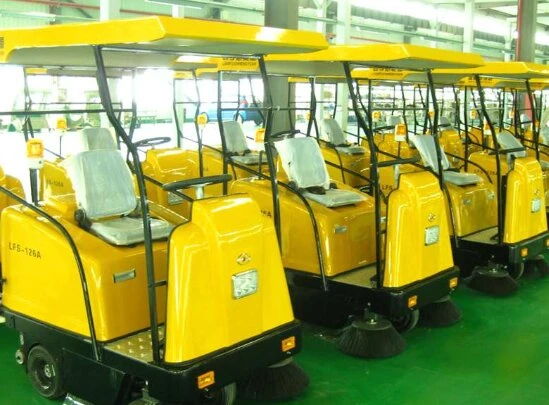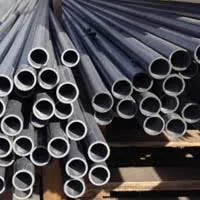
-
 Afrikaans
Afrikaans -
 Albanian
Albanian -
 Amharic
Amharic -
 Arabic
Arabic -
 Armenian
Armenian -
 Azerbaijani
Azerbaijani -
 Basque
Basque -
 Belarusian
Belarusian -
 Bengali
Bengali -
 Bosnian
Bosnian -
 Bulgarian
Bulgarian -
 Catalan
Catalan -
 Cebuano
Cebuano -
 China
China -
 China (Taiwan)
China (Taiwan) -
 Corsican
Corsican -
 Croatian
Croatian -
 Czech
Czech -
 Danish
Danish -
 Dutch
Dutch -
 English
English -
 Esperanto
Esperanto -
 Estonian
Estonian -
 Finnish
Finnish -
 French
French -
 Frisian
Frisian -
 Galician
Galician -
 Georgian
Georgian -
 German
German -
 Greek
Greek -
 Gujarati
Gujarati -
 Haitian Creole
Haitian Creole -
 hausa
hausa -
 hawaiian
hawaiian -
 Hebrew
Hebrew -
 Hindi
Hindi -
 Miao
Miao -
 Hungarian
Hungarian -
 Icelandic
Icelandic -
 igbo
igbo -
 Indonesian
Indonesian -
 irish
irish -
 Italian
Italian -
 Japanese
Japanese -
 Javanese
Javanese -
 Kannada
Kannada -
 kazakh
kazakh -
 Khmer
Khmer -
 Rwandese
Rwandese -
 Korean
Korean -
 Kurdish
Kurdish -
 Kyrgyz
Kyrgyz -
 Lao
Lao -
 Latin
Latin -
 Latvian
Latvian -
 Lithuanian
Lithuanian -
 Luxembourgish
Luxembourgish -
 Macedonian
Macedonian -
 Malgashi
Malgashi -
 Malay
Malay -
 Malayalam
Malayalam -
 Maltese
Maltese -
 Maori
Maori -
 Marathi
Marathi -
 Mongolian
Mongolian -
 Myanmar
Myanmar -
 Nepali
Nepali -
 Norwegian
Norwegian -
 Norwegian
Norwegian -
 Occitan
Occitan -
 Pashto
Pashto -
 Persian
Persian -
 Polish
Polish -
 Portuguese
Portuguese -
 Punjabi
Punjabi -
 Romanian
Romanian -
 Russian
Russian -
 Samoan
Samoan -
 Scottish Gaelic
Scottish Gaelic -
 Serbian
Serbian -
 Sesotho
Sesotho -
 Shona
Shona -
 Sindhi
Sindhi -
 Sinhala
Sinhala -
 Slovak
Slovak -
 Slovenian
Slovenian -
 Somali
Somali -
 Spanish
Spanish -
 Sundanese
Sundanese -
 Swahili
Swahili -
 Swedish
Swedish -
 Tagalog
Tagalog -
 Tajik
Tajik -
 Tamil
Tamil -
 Tatar
Tatar -
 Telugu
Telugu -
 Thai
Thai -
 Turkish
Turkish -
 Turkmen
Turkmen -
 Ukrainian
Ukrainian -
 Urdu
Urdu -
 Uighur
Uighur -
 Uzbek
Uzbek -
 Vietnamese
Vietnamese -
 Welsh
Welsh -
 Bantu
Bantu -
 Yiddish
Yiddish -
 Yoruba
Yoruba -
 Zulu
Zulu
GRP Playground Equipment Durable FRP & Fiberglass Play Structures
- Introduction to composite playground structures
- Technical advantages over traditional materials
- Market impact and adoption statistics
- Leading manufacturer comparison
- Customization possibilities for diverse needs
- Real-world application case studies
- Future outlook for play structures

(grp playground equipment)
Transforming Recreation with GRP Playground Equipment
Modern playgrounds increasingly utilize GRP (Glass Reinforced Plastic) as the material of choice for innovative play structures. This composite technology combines polymer resins with glass fibers, creating equipment that withstands decades of heavy use. Commonly called FRP (Fiberglass Reinforced Plastic) or simply fiberglass playground equipment, these installations now account for over 38% of new municipal playground projects globally according to Recreation Management Magazine. The shift from traditional wood and metal stems from GRP's unique ability to blend structural integrity with creative freedom. Unlike conventional materials, fiberglass permits organic curves, vibrant colors, and thematic designs that fire children's imaginations while meeting rigorous safety standards.
Unparalleled Technical Advantages
Fiberglass playground equipment delivers superior performance characteristics crucial for public spaces. The material's innate corrosion resistance eliminates rust concerns and withstands harsh weather fluctuations from -40°F to 180°F. Impact testing reveals GRP structures absorb 30% more kinetic energy than metal alternatives, reducing injury risks during falls. Maintenance requirements plummet compared to wood equipment, which typically demands annual resealing and regular splinter inspections. GRP's non-porous surface inhibits microbial growth and allows complete sanitization with hospital-grade cleaners. The material strength-to-weight ratio enables larger cantilevered components impossible with other materials, while UV-stable pigments maintain color vibrancy beyond 15 years without repainting.
Market Expansion and Safety Metrics
The global FRP playground equipment market is projected to reach $2.8 billion by 2028 (Grand View Research). Safety data reveals compelling advantages: municipalities report 45% fewer equipment-related injuries after replacing metal structures with GRP alternatives. Maintenance cost differentials prove substantial with fiberglass requiring just $380 annual upkeep per structure versus $1,200 for wood and $900 for metal. Accelerated lifecycle analysis demonstrates GRP's 25-30 year operational span outlasts wood by 15 years and metal by 8 years. Playground administrators particularly value fiberglass's compliance with critical safety standards including ASTM F1487, CPSC guidelines, and EN 1176 impact attenuation requirements.
Manufacturer Comparison Analysis
| Manufacturer | Lead Time | Customization Level | Warranty | Safety Certifications |
|---|---|---|---|---|
| CompositePlay Systems | 8-10 weeks | Full custom design | 20 years | ASTM, EN, ISO |
| FiberTech Recreation | 12-14 weeks | Modified modular | 15 years | ASTM, CSA |
| Plastech Playgrounds | 6-8 weeks | Theme customization | 10 years | ASTM |
| PolyDesign International | 10-12 weeks | Semi-custom | 12 years | EN, ISO |
Customization Capabilities
Fiberglass playground equipment offers unprecedented design flexibility compared to standardized metal systems. Manufacturers employ CAD-driven molds to create custom installations matching specific educational themes or architectural environments. Recent innovations include:
- Topographical play panels with integrated sensory features
- Structurally integrated shade components reducing heat retention by 62%
- ADA-compliant ramp systems with traction-enhanced surfaces
- Site-specific color matching using Pantone verification systems
- Theme integrations (marine, jungle, space) with dimensional elements
The manufacturing process permits modifications even after mold creation, with design adjustments costing 65% less than structural changes to metal equipment. This flexibility makes FRP playground equipment particularly valuable for destination playgrounds requiring signature elements.
Implementation Case Studies
Minneapolis transformed five neighborhood parks using fiberglass playground equipment designed to withstand extreme temperature fluctuations. Post-installation surveys showed 84% higher satisfaction with durability and 79% increased usage compared to previous structures. A Tampa Bay elementary school incorporated GRP structures with hurricane-rated anchoring achieving 185 mph wind resistance. After three years, maintenance records showed zero structural issues despite tropical storm exposure. London's King's Cross development installed customized FRP equipment featuring British wildlife themes, creating an award-winning playspace that increased property values by 13% in adjacent buildings according to developer assessments.
Future-Proof Development with FRP Playground Equipment
Industry trends indicate continued innovation in fiberglass playground solutions. Manufacturers are developing GRP composites with recycled ocean plastics that meet identical performance specifications. The U.S. Navy recently shared military-grade resin technology enabling structures with 40% greater impact resistance. Environmental factors increasingly favor fiberglass playground equipment with lifecycle analyses showing 60% lower carbon footprint compared to steel alternatives. Research from PlayCore indicates that advanced GRP structures support inclusive play for children across all physical ability levels, fulfilling critical social development goals. As urbanization advances, these fiber-reinforced systems stand poised to redefine recreational spaces globally.

(grp playground equipment)
FAQS on grp playground equipment
Q: What are the benefits of GRP playground equipment?
A: GRP playground equipment is lightweight, durable, and resistant to corrosion. It offers vibrant color retention and requires minimal maintenance, making it ideal for outdoor play areas.
Q: Is FRP playground equipment safe for children?
A: Yes, FRP playground equipment is designed with smooth edges and non-toxic materials. It meets safety standards for impact absorption and structural stability, ensuring child-friendly use.
Q: How does fiberglass playground equipment withstand weather conditions?
A: Fiberglass playground equipment is UV-resistant and waterproof. It does not warp, rust, or degrade in extreme temperatures, ensuring long-term durability in diverse climates.
Q: Can GRP playground equipment be customized?
A: Yes, GRP playground equipment can be molded into various shapes and colors. Manufacturers often offer bespoke designs to match specific themes or space requirements.
Q: How does FRP compare to traditional metal playground equipment?
A: FRP playground equipment is lighter, rust-proof, and requires less upkeep than metal. It also provides better thermal insulation, preventing overheating in direct sunlight.
Latest news
-
Durable Rectangular Fiberglass Tanks Corrosion-ResistantNewsJun.04,2025
-
GRP Rectangular Water Tanks Durable Custom Dimensions for StorageNewsJun.04,2025
-
Premium Fiberglass Storage Tanks Durable & Corrosion-ResistantNewsJun.04,2025
-
Durable Fiberglass Fuel Tank - Corrosion-Resistant & SafeNewsJun.04,2025
-
Premium FRP Dual Lamination Products High Strength & Corrosion ResistantNewsJun.04,2025
-
Durable FRP Stair Treads Slip-Resistant & Corrosion ProofNewsJun.04,2025









